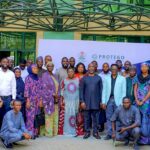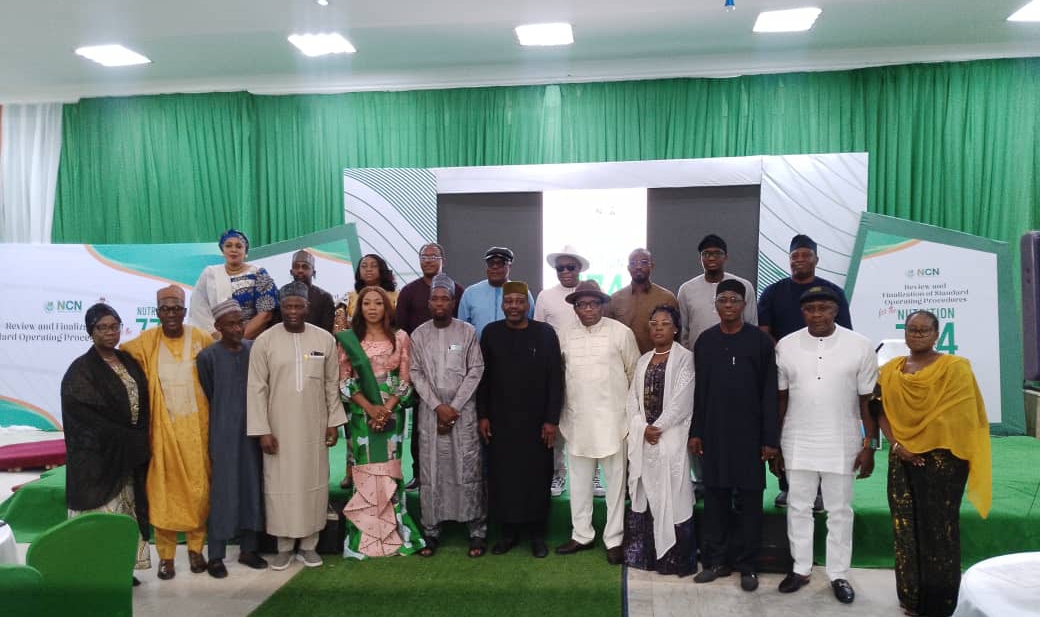By Justina Auta
The Federal Government has reiterated its commitment to combat malnutrition and improve nutrition outcomes across all 774 Local Government Areas (LGAs) in the country.
Ibrahim Hassan-Hadejia, Deputy Chief of Staff to the President at the Office of the Vice President, made this statement at a two-day N-774 Standard Operating Procedure (SOP) validation meeting on Thursday in Abuja.
The meeting was organised by the National Council on Nutrition (NCN).
Hassan-Hadejia emphasised that the workshop aimed to ensure the effective implementation of the initiative, which sought to strengthen nutrition interventions at the grassroots level.
He said under the leadership of Vice President Kashim Shettima, the initiative would drive coordinated action across key sectors, including health, agriculture, education, water and sanitation, and social protection.
“This initiative reflects our collective resolve to ensure that every Nigerian, especially our children, has access to the nutrition they need to survive, grow, and thrive,” he stated.
The Deputy Chief of Staff described malnutrition as a silent crisis that threatened national development, calling for urgent, collaborative efforts to address the challenge.
“Malnutrition stunts human potential, weakens communities, and slows economic growth.
“A single-sector response will not be enough; we need strong coordination across all relevant ministries, departments, and agencies to make a real impact,” he explained.
Hassan-Hadejia reaffirmed President Bola Tinubu’s commitment to human capital development, emphasising that nutrition is a key priority in the administration’s development agenda.
He stressed that the initiative required active participation from federal, state, and local governments, development partners, the private sector, civil society, academia, and the media.
“Success will require strong coordination, transparency, and accountability at all levels.
“MDAs must prioritise nutrition in their plans and budgets, the Legislature must provide oversight and budgetary support, while development partners must align their contributions for sustainability,” he said.
He urged all stakeholders to work together to finalise a comprehensive SOP that would guide the initiative’s implementation and ensured measurable impact.
“Our success will not be measured by policies on paper but by the real-life improvements we bring to communities, reducing stunting, improving maternal and child health, and empowering communities to sustain these gains,” he added.
Dr Chike Okafor, House of Representatives Committee Chairman on Nutrition and Food Security, highlighted that malnutrition and food insecurity have been exacerbated by inflation, climate change, and banditry.
“While Nigeria has invested considerable financial and material resources in nutrition over the past few years, results have not matched the corresponding investments,” Okafor said, referencing the 2023/24 Nigeria Demographic and Health Survey (NDHS) report.
Okafor, also the Chairman of the National Legislative Network on Nutrition and Food Security, noted that the N-774 Initiative presented an opportunity for effective collaboration between the Executive and the Legislature.
He added that efforts were underway to strengthen committees on Nutrition and Food Security in the 36 state Houses of Assembly, enabling them to lead programmatic oversight of the initiative at the local government level.
“This will ensure accountability, transparency, and value for money.
“Local government councils will also be encouraged to make significant budgetary allocations for nutrition-specific interventions at the community level,” he said.
Similarly, Bello Lawal, National President of the National Association of Local Governments of Nigeria (ALGON), reiterated their commitment to ensure the success of the initiative.
Lawal, represented by Abdurrahman Lawan, Chairman of ALGON in Jigawa State, noted that Jigawa had made progress in addressing malnutrition through its Masaki Nutrition Programme.
“This programme is supported by contributions from each local government and carries out fortnightly monitoring activities, delivering nutritional packages to vulnerable children in their homes to boost their status,” he explained.
Uju Okorochas-Anwukah, Special Assistant to the President on Public Health and Nutrition, emphasised the need for more action to address malnutrition among vulnerable groups across all 774 LGAs.
“This initiative brings us together, not as competitors, but as collaborators united in our approach, because the challenge of malnutrition is too vast for any one group to tackle alone,” she said.
Dr Emeka Obi, Permanent Secretary of the Federal Ministry of Budget and Economic planning, added, “This initiative aims to integrate nutrition into a broader economic and development planning framework.”(NAN) (www.nannews.ng.com)
Edited by Abiemwense Moru












